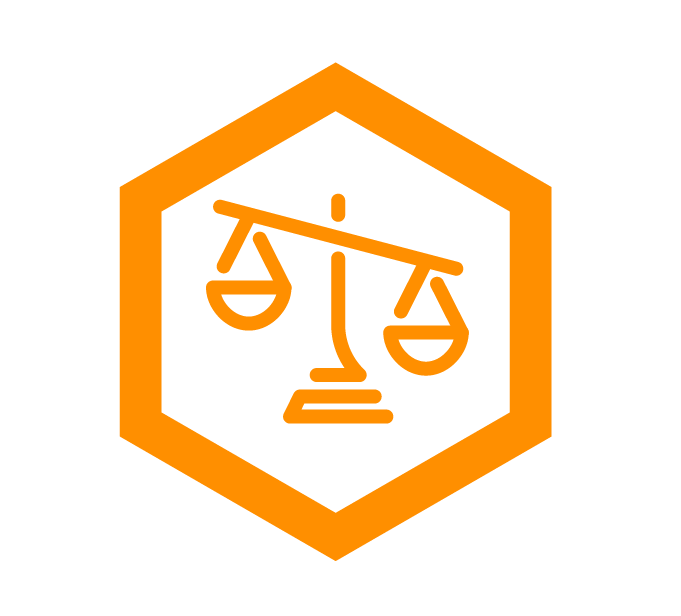
Revolutionizing Higher Education with Data Mesh
Empowering Insights and Collaboration
In recent years, organizations across industries are realizing the value of their data, and higher education is no exception. As higher education institutions strive to make informed decisions, personalize student experiences, and foster collaboration, the flaws and limitations of traditional monolithic data warehouses are being realized. Consideration should be given on how data mesh principles can revolutionize higher education, empowering insights, and collaboration across academic departments, research teams, and administrative units.

Democratization of Data
Data mesh emphasizes democratizing data, empowering individuals and teams to have ownership and accountability for their data domains. In higher education, this approach breaks down traditional data silos and grants departments, research groups, and administrative units more control over their data. With localized data ownership, decision-makers gain faster access to relevant data, enabling them to make data-driven decisions tailored to their specific needs. This democratization of data fosters a culture of empowerment and innovation.
Principles of Data Mesh
There are 5 principles of data mesh as defined by Zhamak Dehghani, Director of Emerging Technologies at Thoughtworks.
Domain-oriented decentralized ownership:
Teams or domains within an organization take ownership of their data. This includes responsibilities such as data quality, data governance, and data infrastructure.
Self-serve data infrastructure as a product:
Each domain builds and manages its own data infrastructure as a product, having freedom to choose tools that best suit their needs. They are responsible for providing self-serve access to their data, treating it as a valuable product for other teams to consume.
Federated computational governance:
This involves establishing common guidelines, standards, and policies that promote interoperability and compatibility between different domains. Collaboration and decision-making processes involve representatives from various domains, ensuring collective ownership of governance practices.
Discoverable and understandable data products:
This encourages reusability and reduces duplication of efforts. Teams should focus on providing clear documentation, metadata, and data catalogs to enable easy exploration and consumption of data products.
Alignment with business capabilities:
Data mesh aligns with the organization's business capabilities, allowing data products to directly support and enhance business processes. Data infrastructure and products should be designed to address specific business needs and enable teams to make data-driven decisions that drive value and innovation.
These are not rigid rules, but rather guidelines that organization can shape and mold to fit their specific use-cases and challenges. When utilized, data mesh can provide tangible benefits within Higher Education.
Enhanced Collaboration
Data mesh promotes cross-functional collaboration and knowledge sharing. By breaking down barriers between departments and administrative units, data mesh fosters interdisciplinary collaboration, which is increasingly essential for tackling complex challenges in research and teaching. Faculty members, researchers, and administrators can share insights, best practices, and resources, leading to improved outcomes and innovation.
Improved Data Quality and Reliability
With data mesh, each team or department takes ownership of its data domain, leading to improved data quality and reliability. This decentralized approach increases accountability and responsibility for data quality, ultimately enhancing the overall reliability of data across the institution. Reliable data enables better decision-making, leading to improved academic programs, student support, and institutional effectiveness.
Agility and Scalability
Higher education institutions deal with diverse data sources, stringent regulatory processes, and evolving requirements. Data mesh provides the flexibility and scalability required to adapt to these variations effectively. Individual teams can build and manage their data infrastructure independently, reducing dependencies on centralized data infrastructure teams. This agility and scalability empower institutions to embrace emerging technologies, explore new data sources, and respond swiftly to evolving needs, thereby staying ahead in a rapidly changing educational landscape.
Personalized Student Experiences
One of the key benefits of data mesh in higher education is the ability to provide personalized student experiences. By leveraging localized data, institutions can gain insights into individual student needs, preferences, and learning patterns. This data-driven approach enables personalized interventions, tailored academic support, and proactive student success initiatives. By understanding students on a granular level, institutions can create more engaging learning environments, leading to improved student outcomes and retention rates.
Data-Driven Decision Making
Data mesh fosters a data-driven culture, empowering stakeholders with access to relevant data, institutions can cultivate evidence-based decision-making practices. Faculty, administrators, and researchers can leverage localized data to gain insights, identify trends, and make informed decisions for curriculum development, resource allocation, and strategic planning. This data-driven decision-making approach strengthens the institution's ability to adapt to changing educational landscapes and achieve its mission more effectively.
Implementing data mesh requires careful planning, coordination, and expertise. We at Moser aid in this culture shift through facilitating the planning and providing both the expertise and architecture. Data mesh holds tremendous potential to revolutionize higher education by unlocking the power of decentralized and democratized data, but only after you have acquired both the technical skills and the infrastructure. With Honeycomb, we have eliminated these barriers. Our skilled consultants meet you where you are and walk beside you on your data journey.
Our Analytics as a Service offering, Honeycomb, is robust and scalable, providing the necessary infrastructure at a price point appreciated by both large and small organizations. By embracing data mesh, higher education institutions can harness the collective intelligence of their academic communities, enhance collaboration, and improve decision-making.







